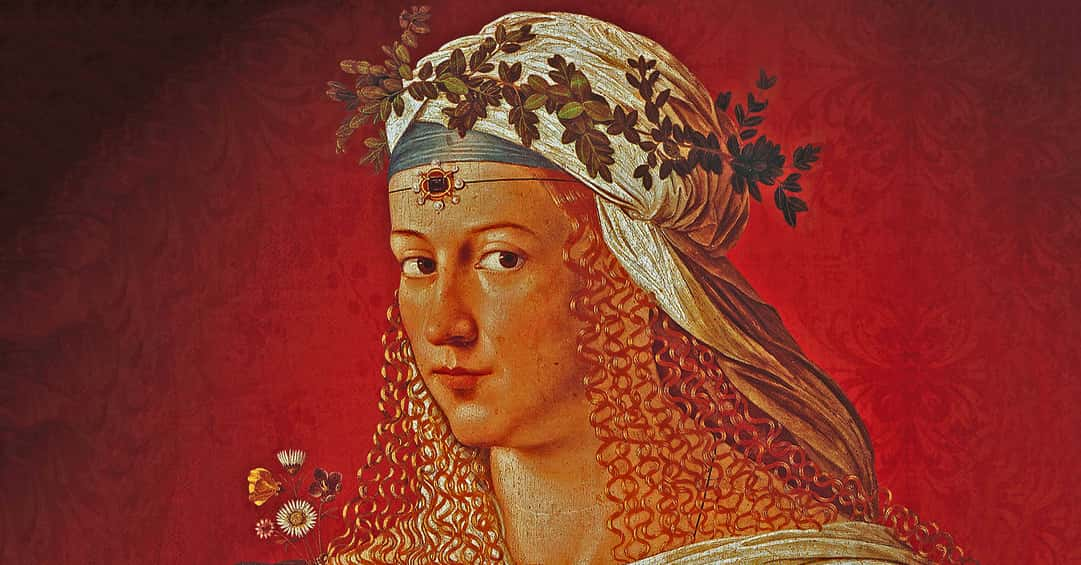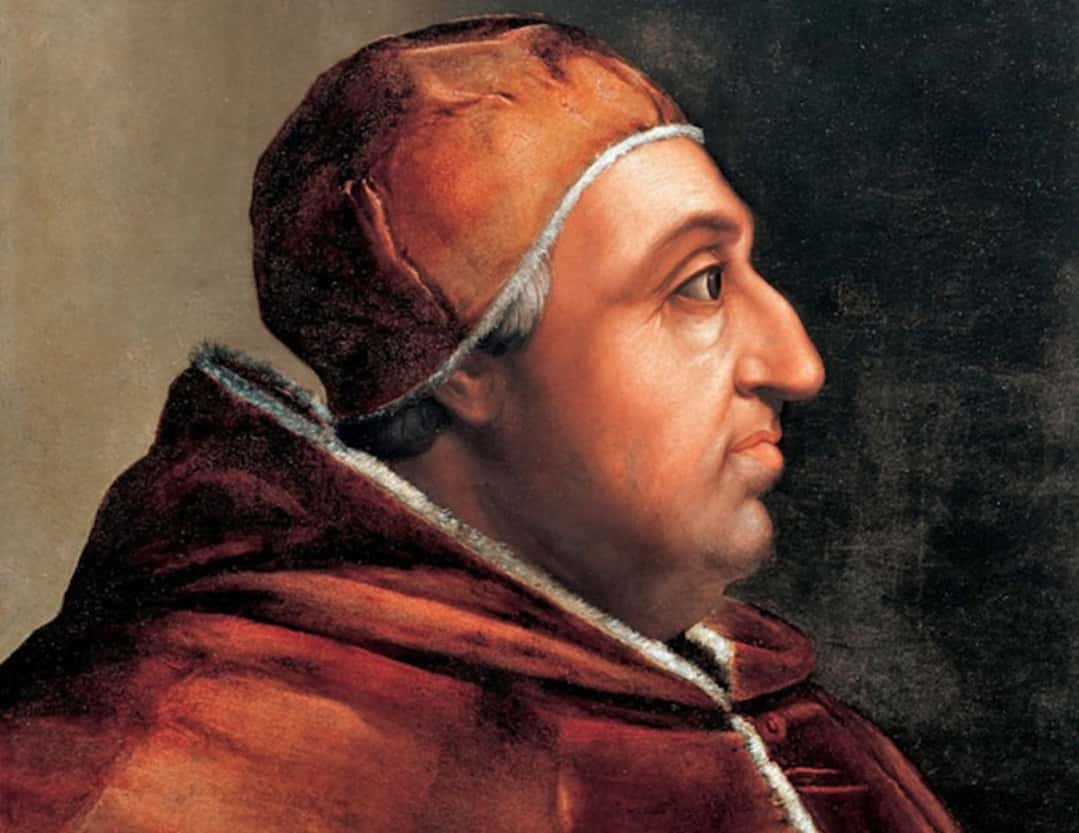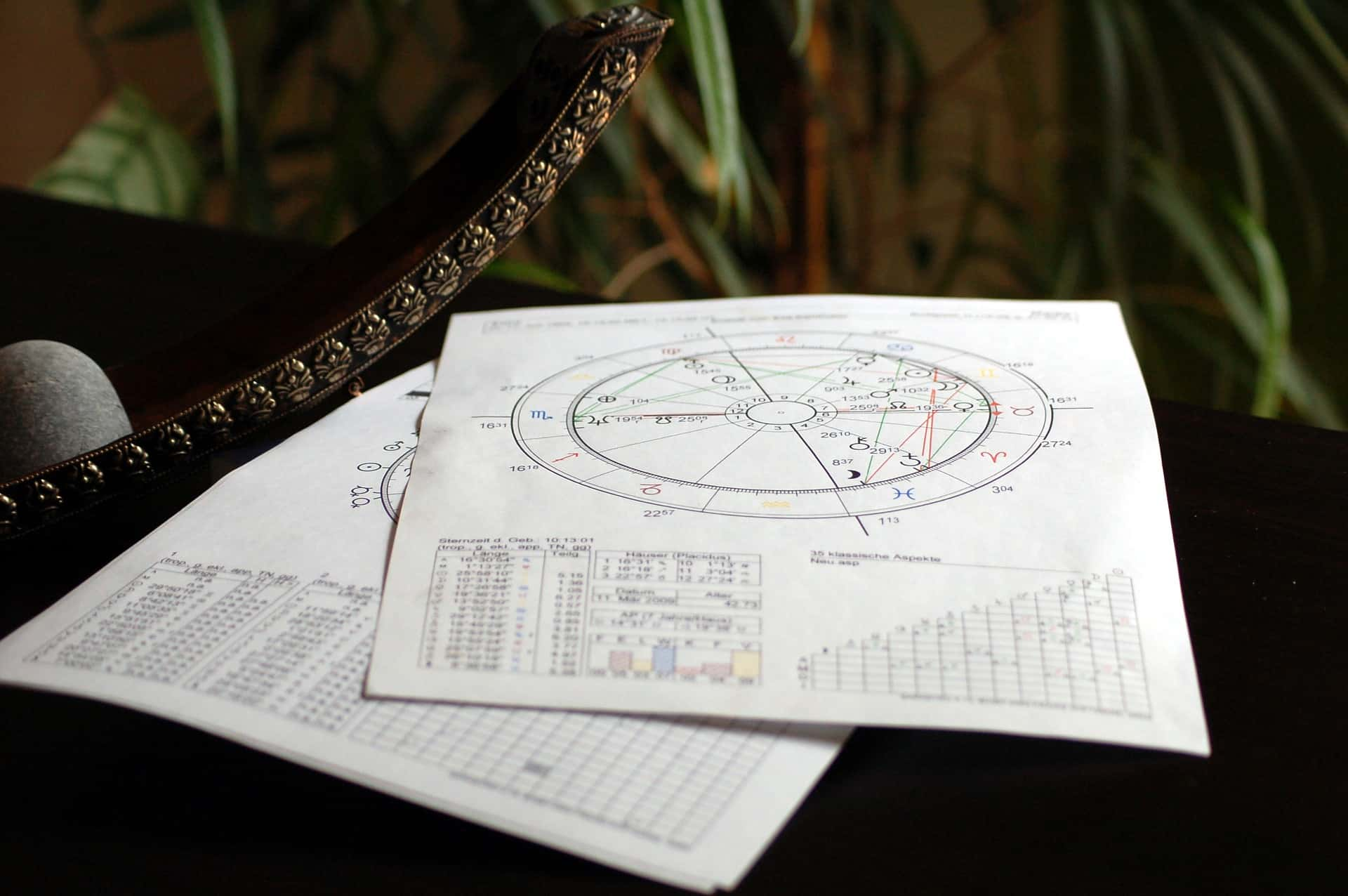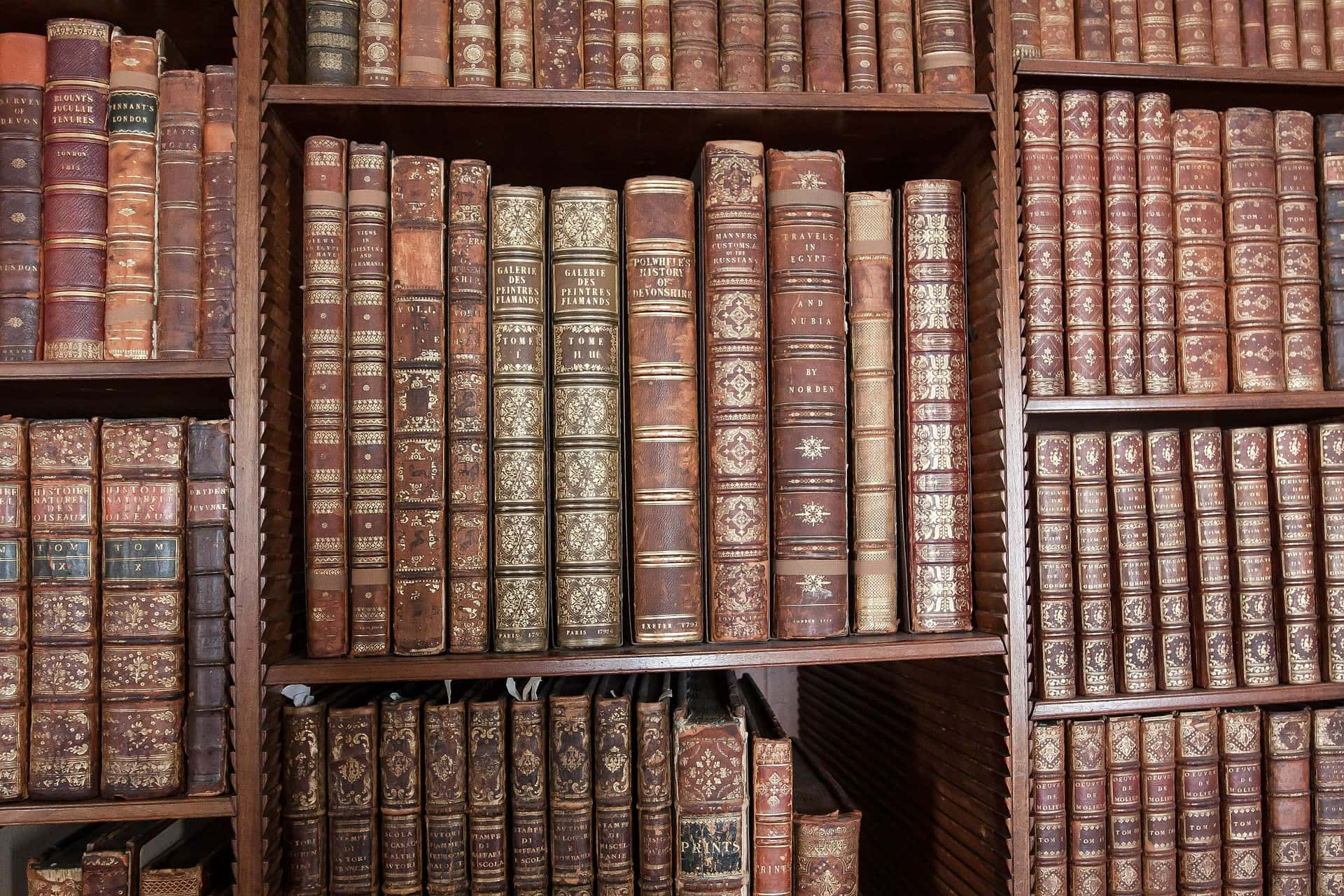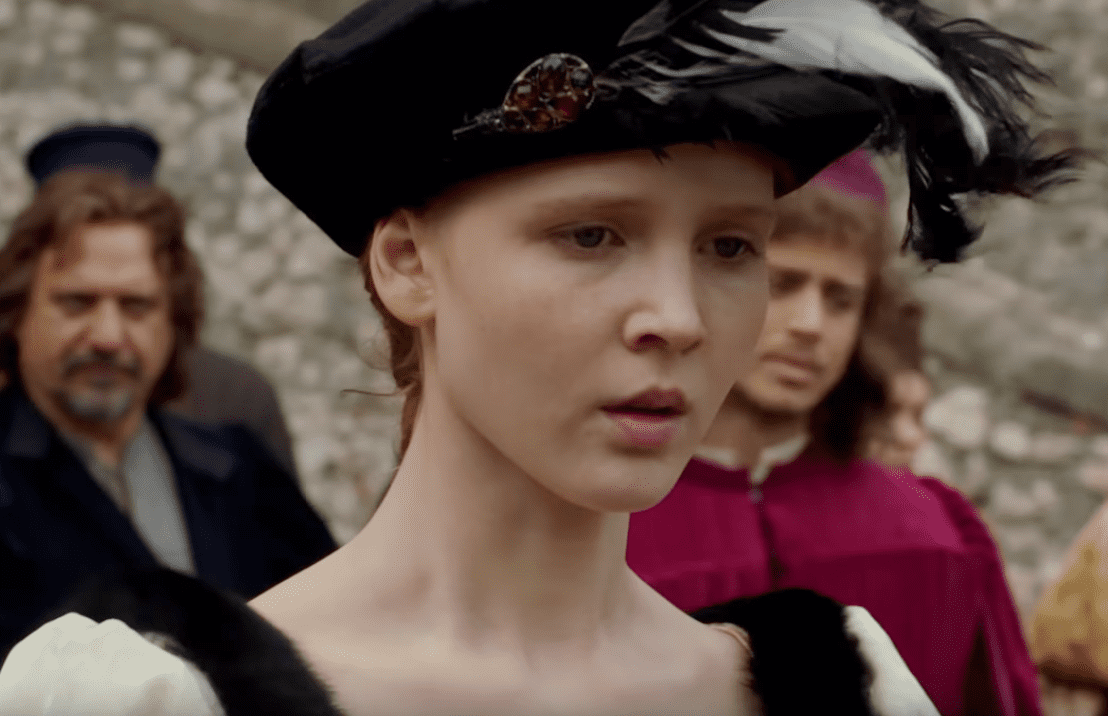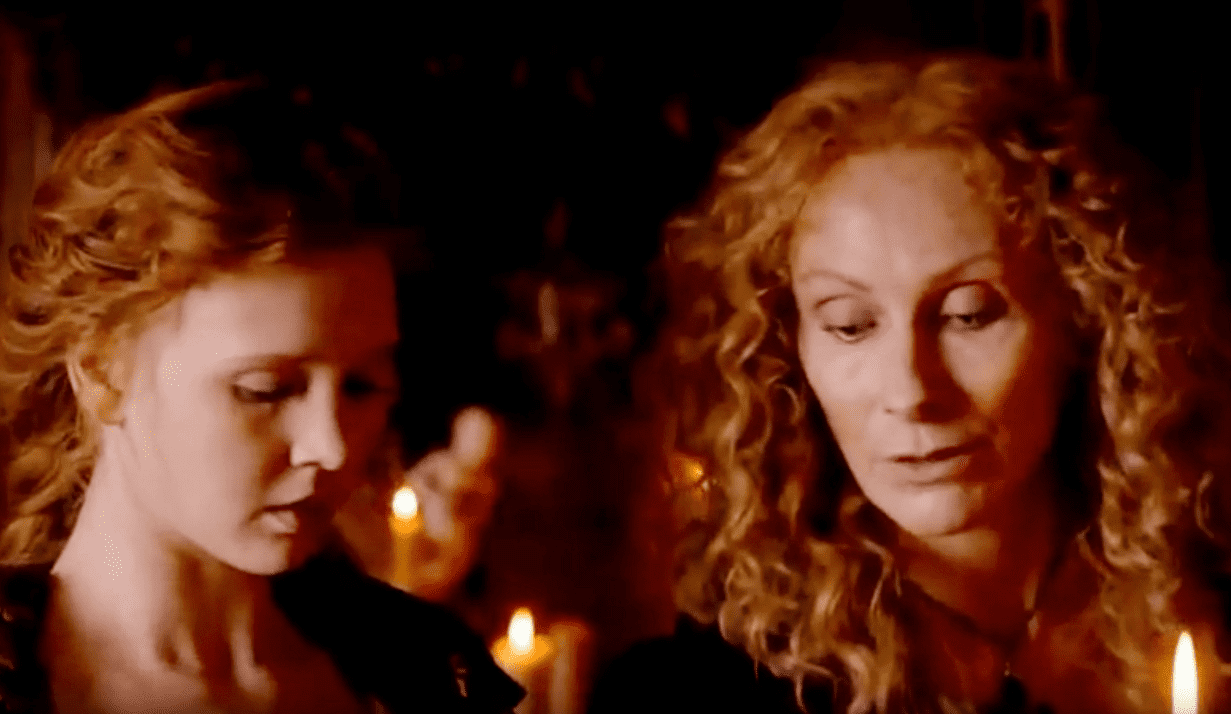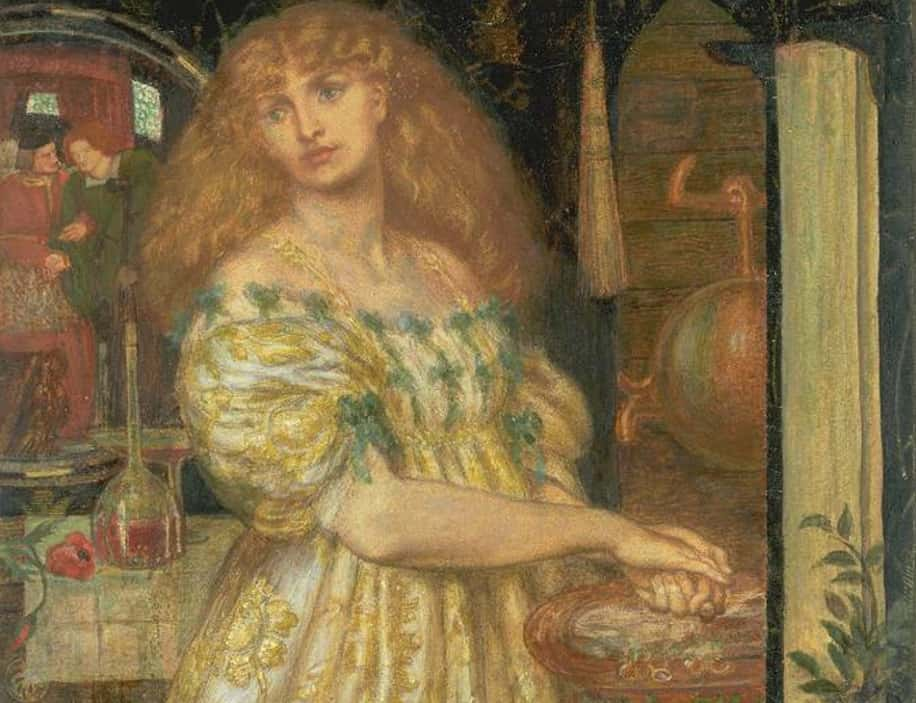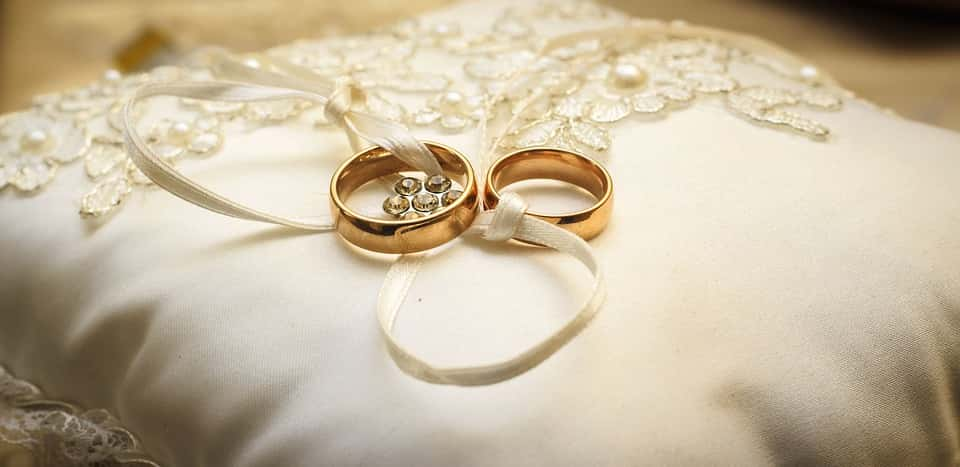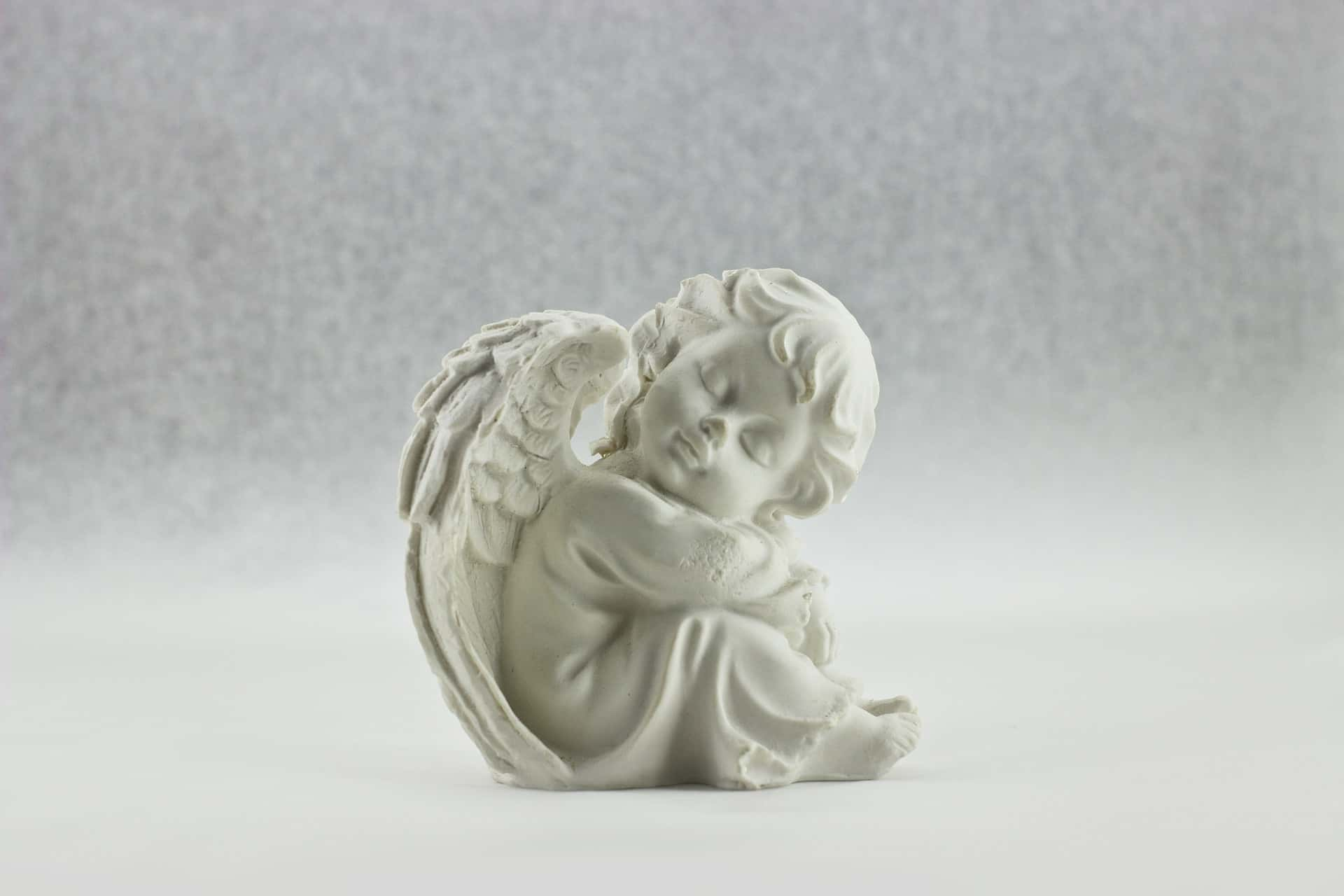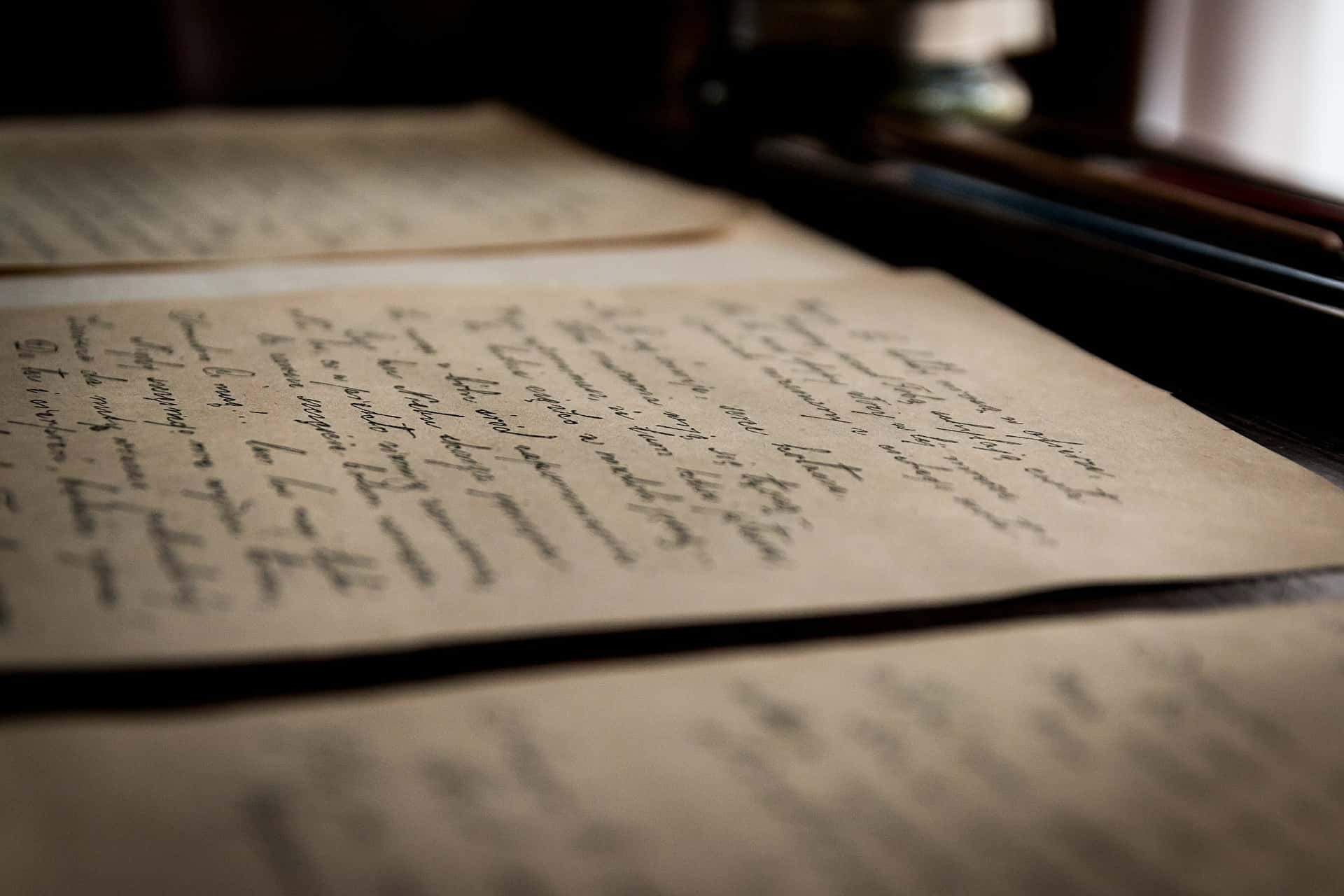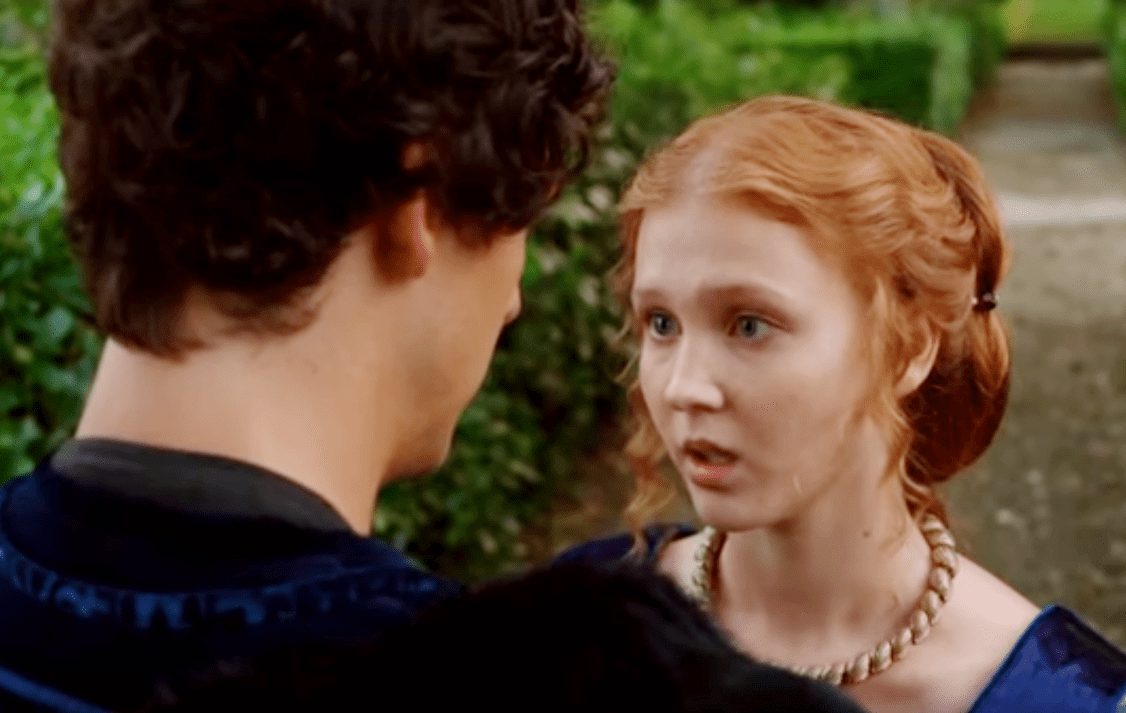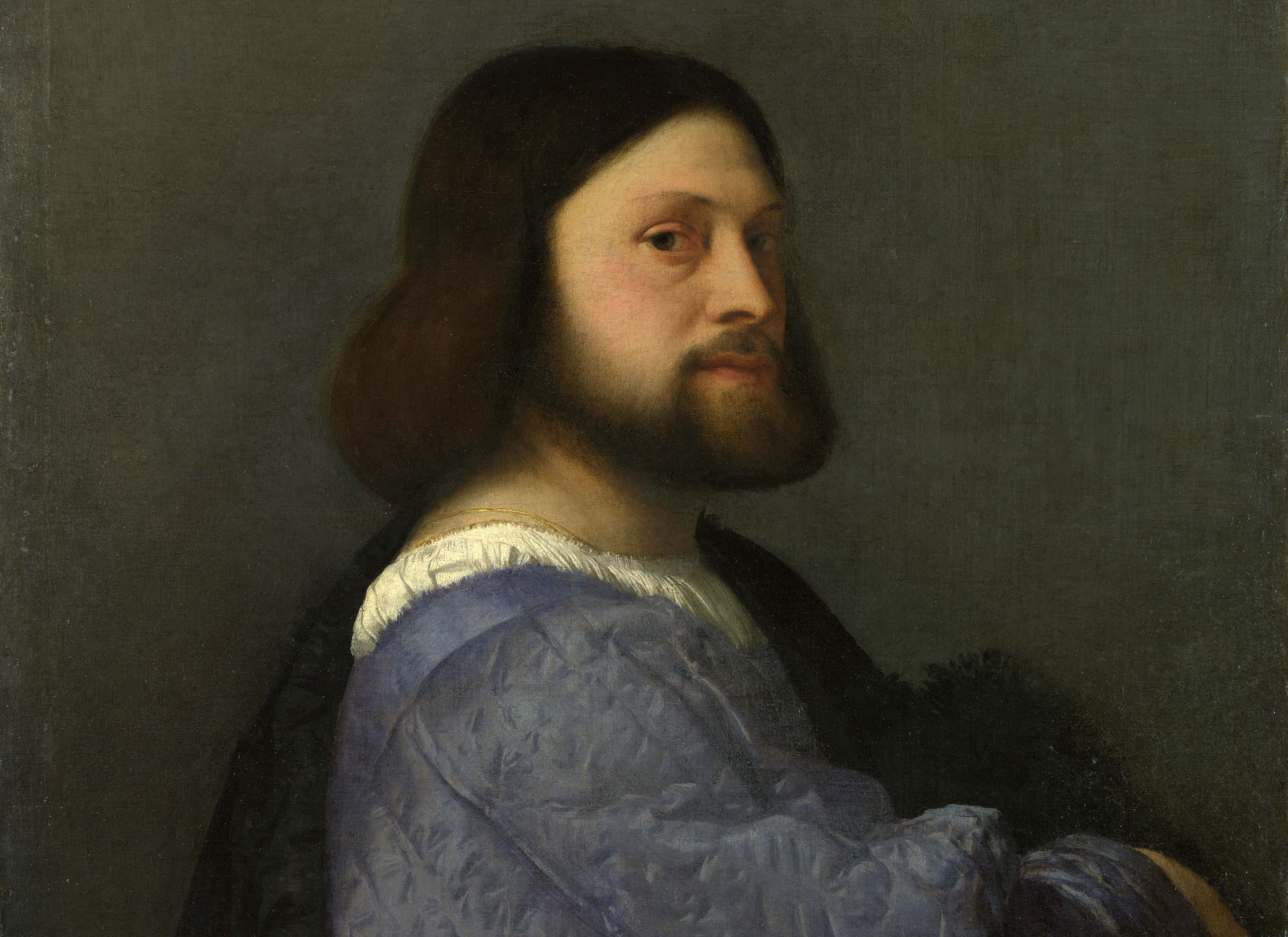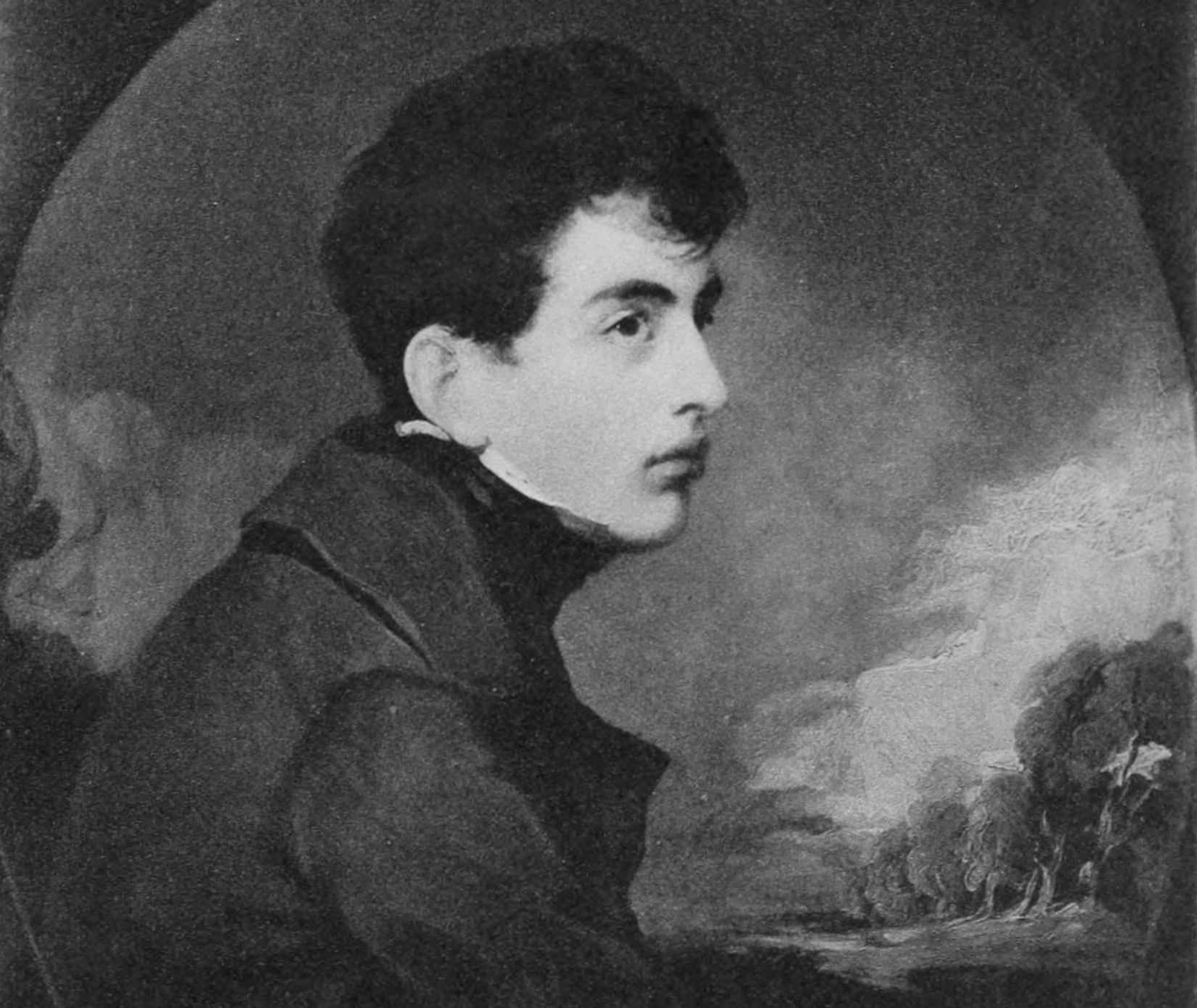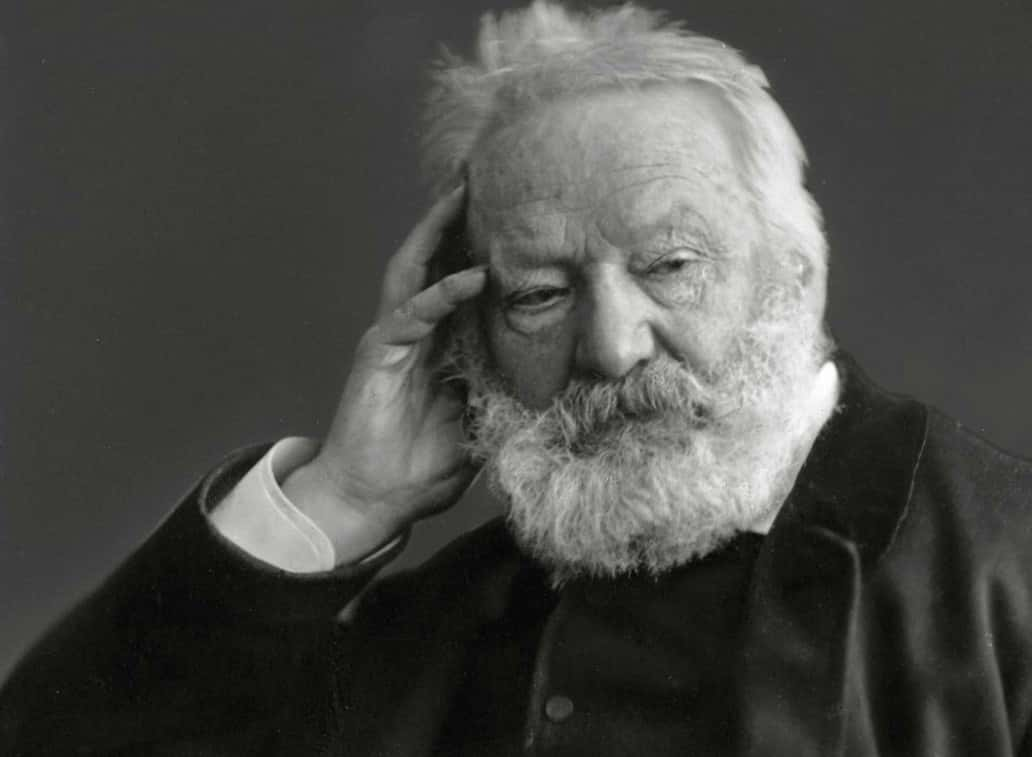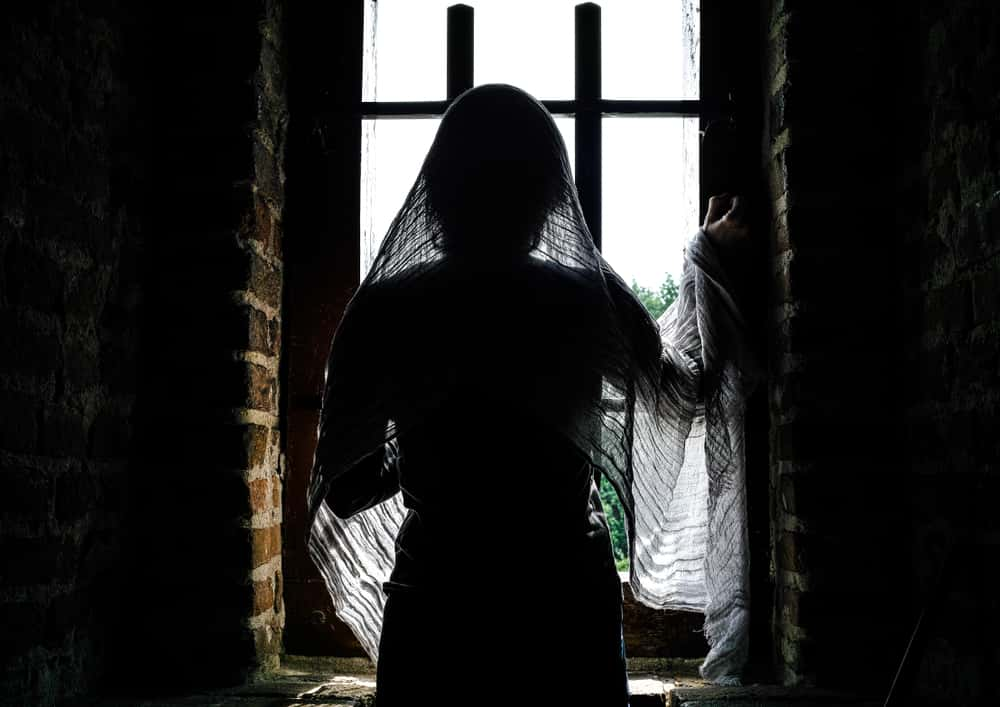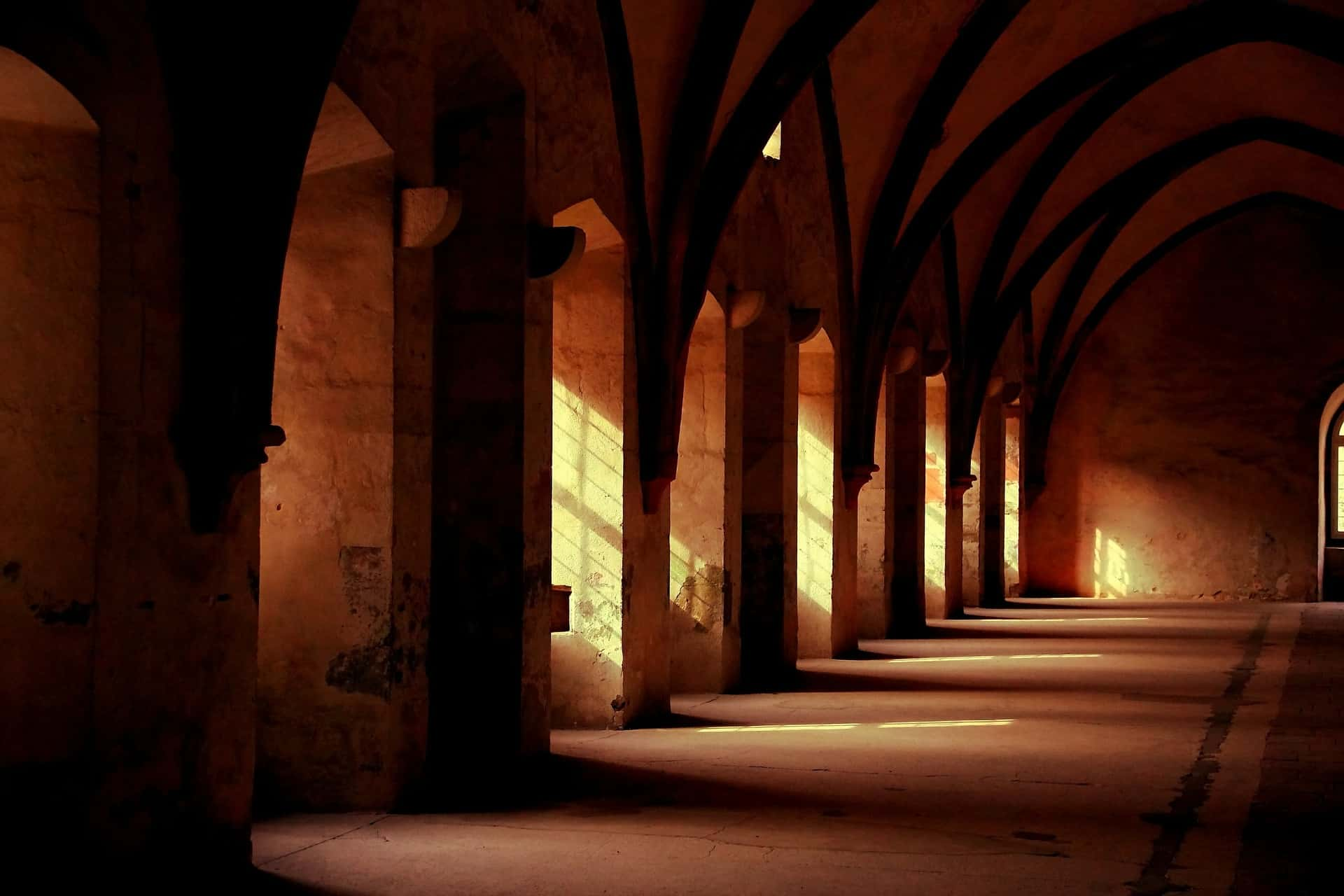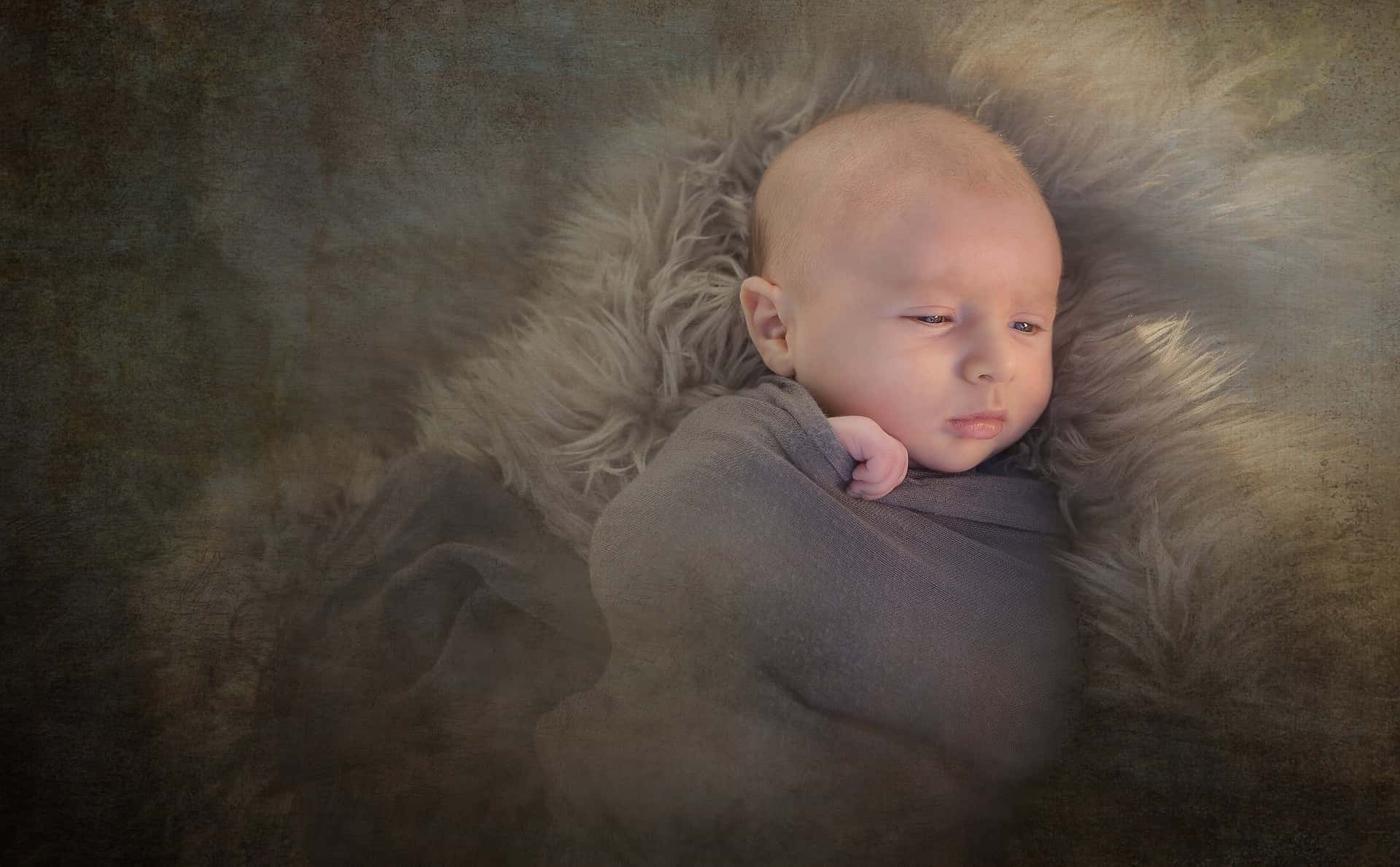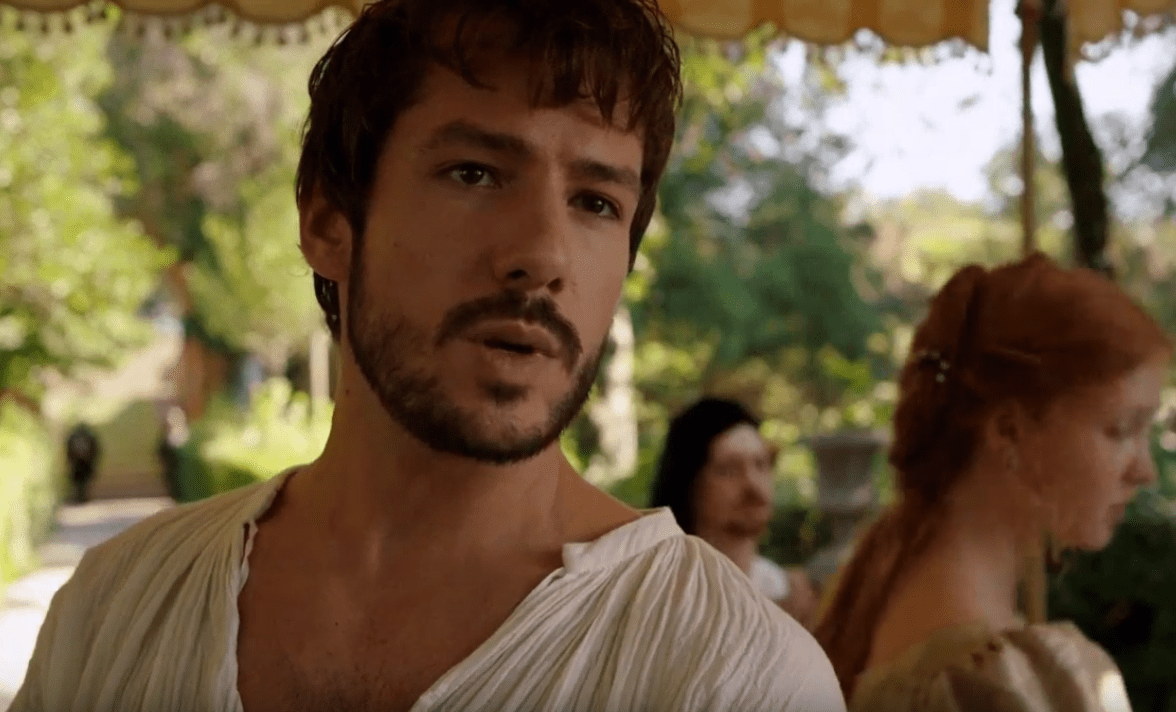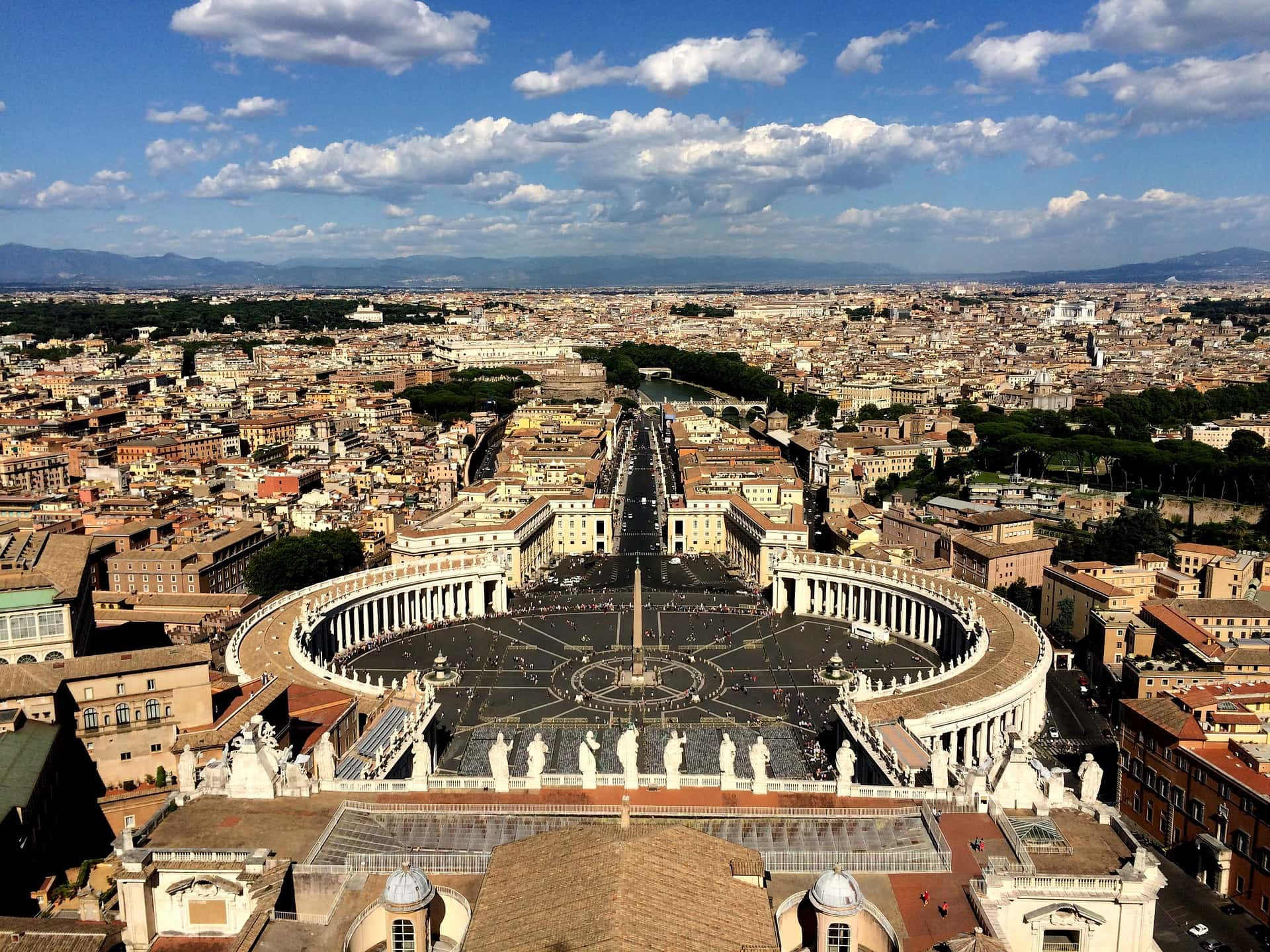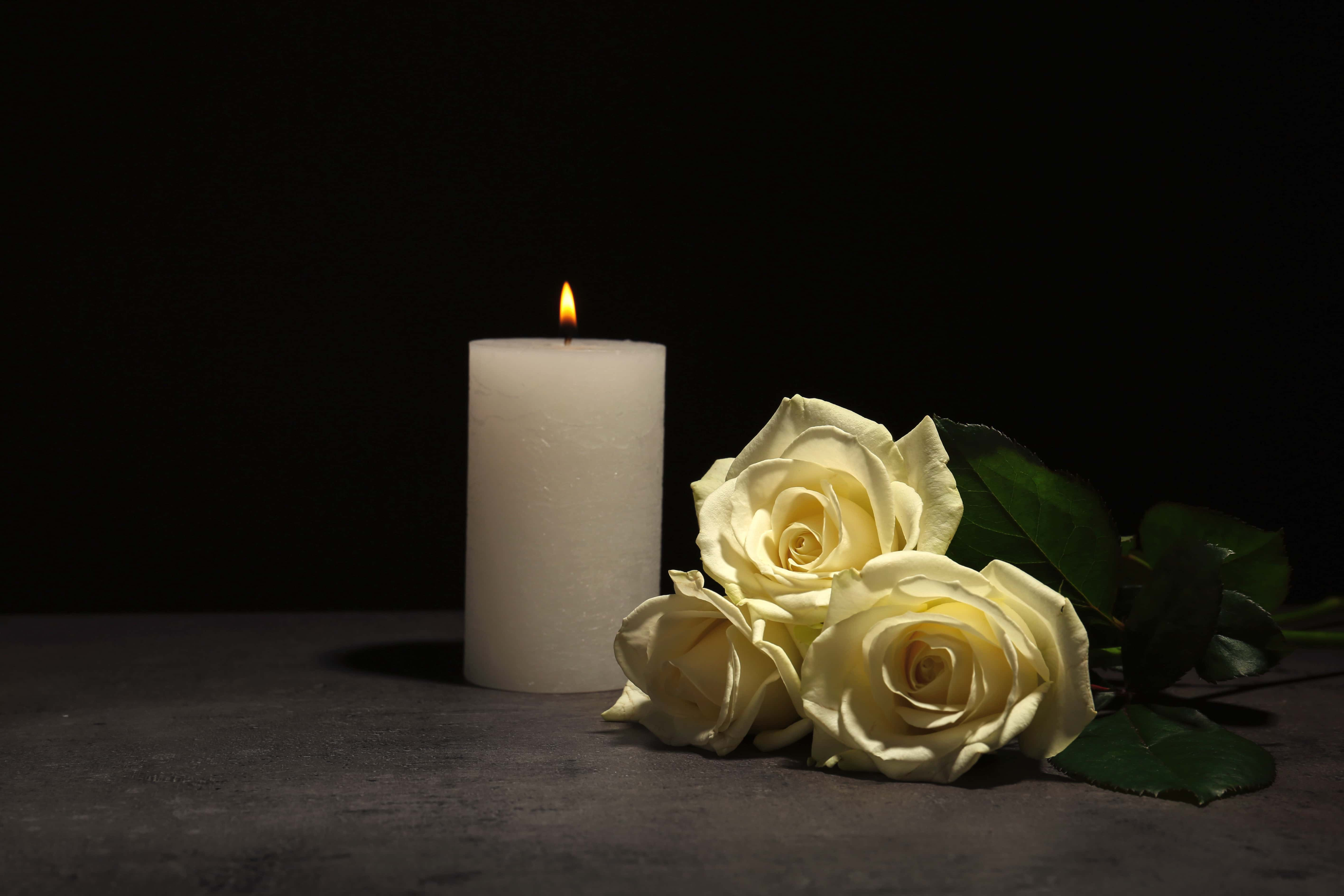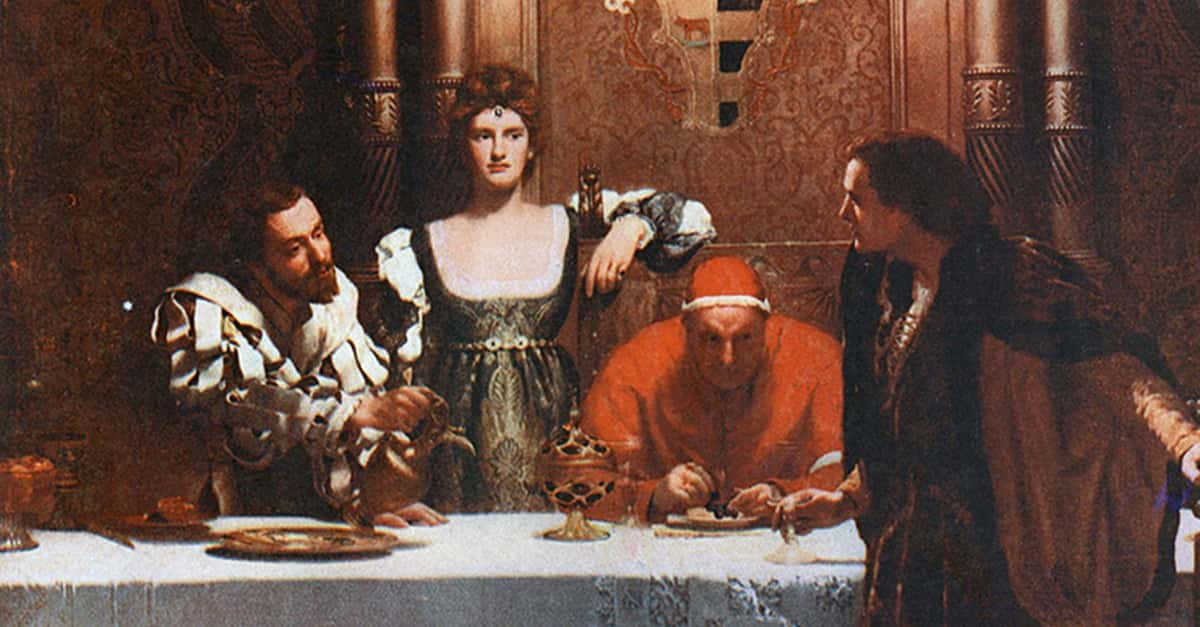Seductress. Schemer. Poisoner. Such words (and worse) have often described Lucrezia Borgia, one of the scandalous children of Pope Alexander VI. The House of Borgia’s infamy, however, will forever cast a shadow over the truth of Lucrezia as a person. Popular culture has built the Borgia darling daughter up as a Renaissance femme fatale. But when we cut through the rumors and myth, the truth is much more complicated.
Say a prayer to these 42 infamous facts about Lucrezia Borgia.
Lucrezia Borgia Facts
1. Born to Pray
Lucrezia was born on April 18, 1480, in Rome when her father was “just” Cardinal Rodrigo Borgia—not yet Pope Alexander VI. Sure, men of the cloth were technically supposed to be celibate. But that hardly stopped the holy Rodrigo from fathering multiple children with Lucrezia’s mother…along with several other women.
2. The Fearsome Foursome
Lucrezia’s mother, Vannozza dei Cattanei, may not have been Rodrigo Borgia’s only mistress, but she was definitely his longest-lasting affair. The couple shared three sons in addition to Lucrezia: Her older brothers Cesare and Giovanni, and her youngest brother Gioffre. As the only daughter among the Pope’s “core four” kids, Lucrezia must have enjoyed some special status in their unconventional family.
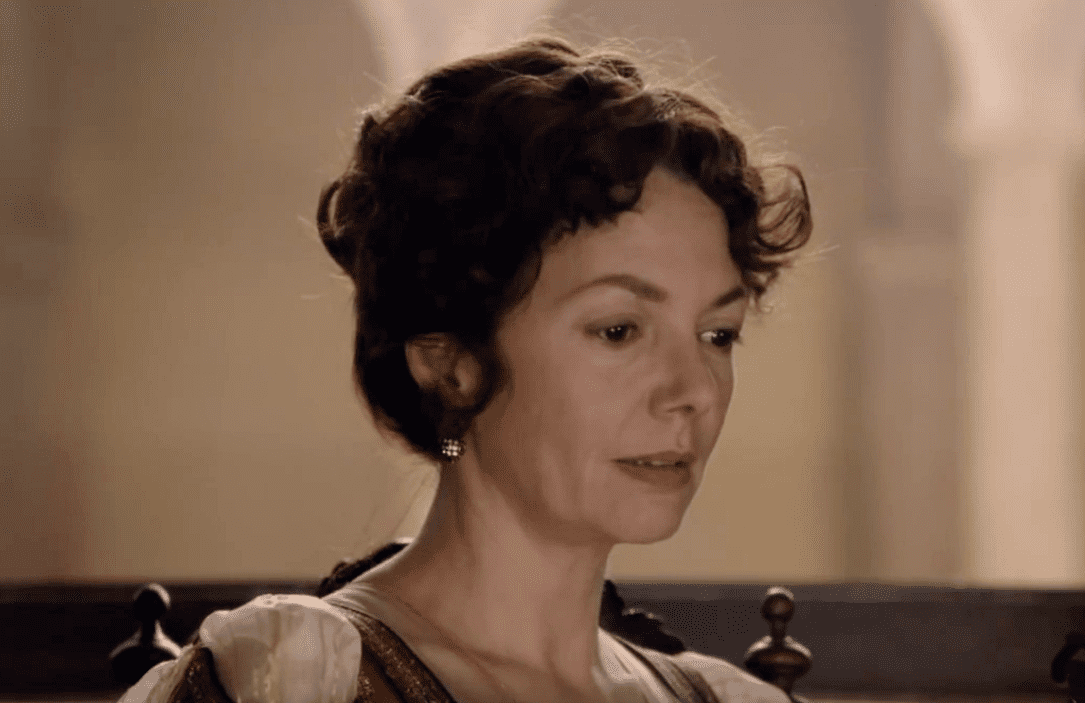 The Borgias (2011–2013), Showtime Networks
The Borgias (2011–2013), Showtime Networks
3. Who’s’ Your Daddy?
Lucrezia also had five paternal half-siblings via other mistresses of her father. One of her youngest acknowledged siblings, Laura, was officially attributed to the husband of Guilia Farnese. Except everyone knew the dark truth. It was an open secret that Laura shared a father with Lucrezia, AKA Pope Alexander.
4. Miss Education
For such an infamous woman, few details survive about Lucrezia’s upbringing. She was not raised immediately in the heart of her father’s court (see: him being a priest and all). At the age of nine, she got an education in the house of her father’s cousin, Adriana de Mila…alongside her father’s brand-new mistress, Guilia Farnese, who had supplanted Lucrezia’s mother by then.
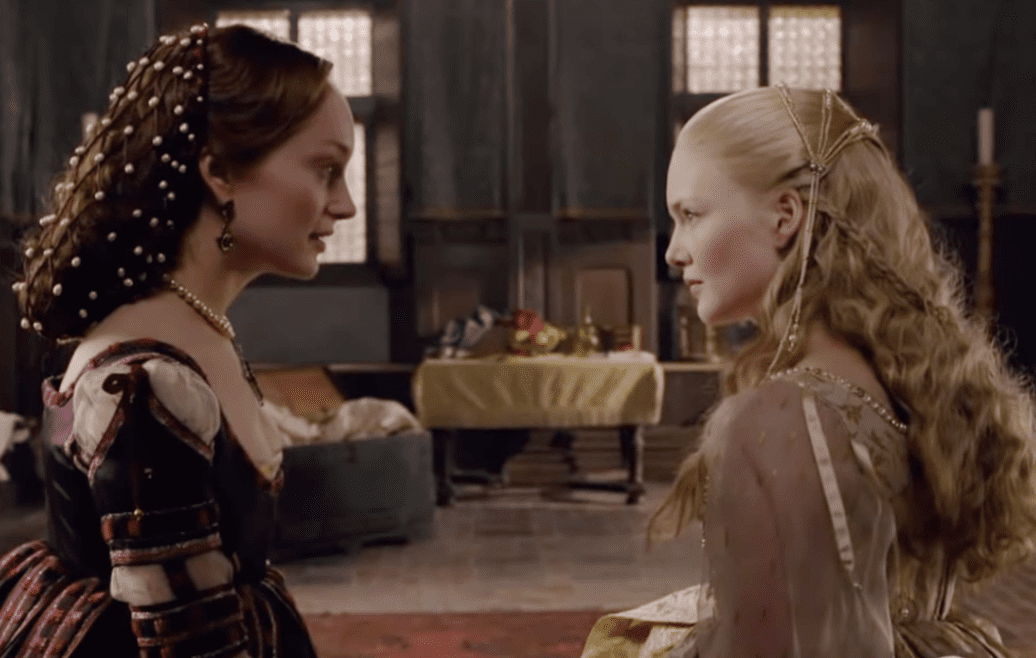 The Borgias (2011–2013), Showtime Networks
The Borgias (2011–2013), Showtime Networks
5. Little Aries Things
Even Popes can be superstitious. Upon the Lucrezia’s birth—at which point no one believed she was the child of her mother’s legal husband—her natural father Rodrigo Borgia hired astrologists to visit the baby and predict her future. The experts foretold this baby would have a “remarkable” life ahead, despite her illegitimate origins.
6. Schooled in Being Cool
Despite her scandalous lineage, Lucrezia was well-educated in the burgeoning Renaissance humanism. She was fluent in Spanish and French as well as a handful of other languages. But this was also incredibly scandalous. Humanities for women was very trendy at the time, but also controversial—the Church thought it might turn women into impious rebels.
7. Face of an Angel, Laugh Like the Devil
Lucrezia Borgia was a great beauty of her day. In her early 20s, a courtier took a totally-not-creepy catalog of the Borgia daughter as a lady “of middle height and graceful of form; her face is rather long, as is her nose, her hair golden, her eyes of no particular color, her mouth is rather large, the teeth brilliantly white, the bust admirably proportioned.”
Jeez, how close and long did he look? In any case, the whole package was summarized as, “Her whole being exudes gaiety and humor.”
8. Here Comes the Sequel
At the time of her birth, her father’s rising power was problematic to the Italian nobility because of the Borgias’ Spanish origins. However, People Alexander VI was not the first Borgia to wear the big hat. That would go to his uncle, Pope Callixtus III. Nepotism ran deep in the Borgia family—I mean, how do you think Alexander got the job in the first place?
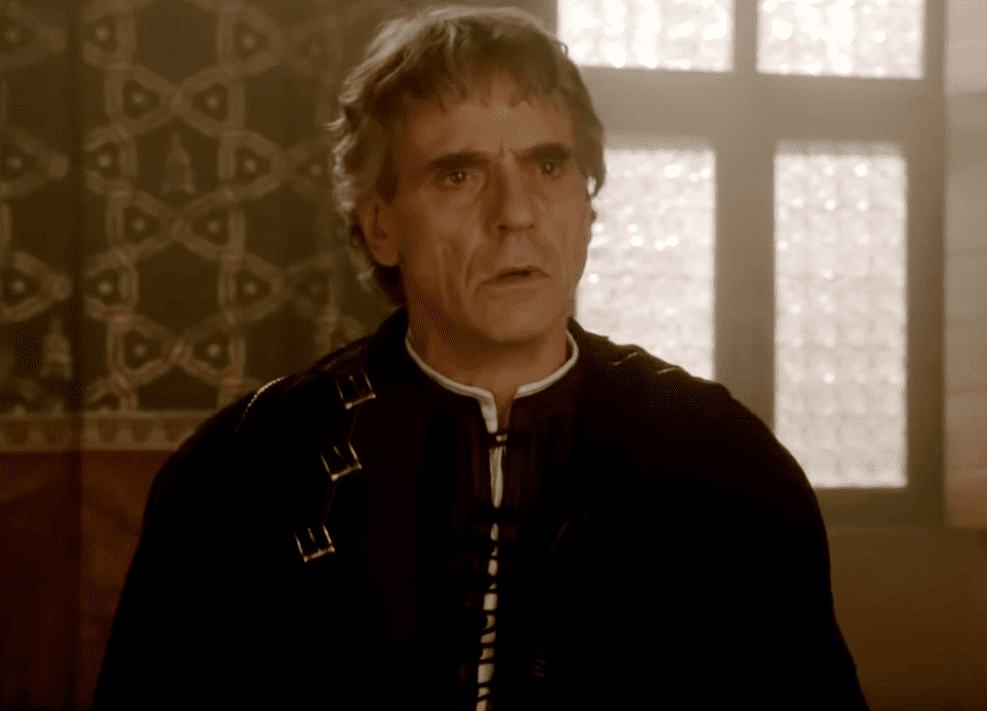 The Borgias (2011–2013), Showtime Networks
The Borgias (2011–2013), Showtime Networks
9. Princess Poker Face
According to lore, Lucrezia was trained to be a sly courtier by her father’s cousin, Adriana de Mila. Adriana apparently passed this advice on to Lucrezia: “Above all, be sure you have something to say, and then express yourself with simplicity and frankness, avoiding affected words. I want you to learn how to think, not how to produce brilliant sentences.” In short: be smart and keep it simple, stupid.

History's most fascinating stories and darkest secrets, delivered to your inbox daily.
10. Ready for My Close-up
Lucrezia’s life changed forever in 1492. When her father Rodrigo ascended as Pope Alexander VI, the pre-teen Lucrezia was thrust into Vatican court politics and began to play a role in Roman culture immediately. At the age of 12, she might even have modeled for the painter Bernardino di Betto as Saint Catherine in a fresco commissioned for the Vatican’s Borgia Apartments.
11. Game of Grooms
Lucrezia was 11 years old at the time of her first engagement. She was originally supposed to marry a fairly minor lord, but her family annulled the contract to betroth her to another lord before she was 13. Then, the ascension of Pope Alexander VI necessitated an even grander match for the Pope’s most prominent daughter.
12. Let’s Not Split the Difference
At the age of 13, Lucrezia made her first marriage. The groom was Giovanni Sforza, himself an out-of-wedlock son of Costanzo I Sforza. Not unlike Lucrezia, Giovanni’s base birth was offset by his powerful connections (his uncle was the Duke of Milan), and the couple wed on June 12, 1493. It was definitely not a match made in heaven. Lucrezia’s husband was 14 years older than his child bride.
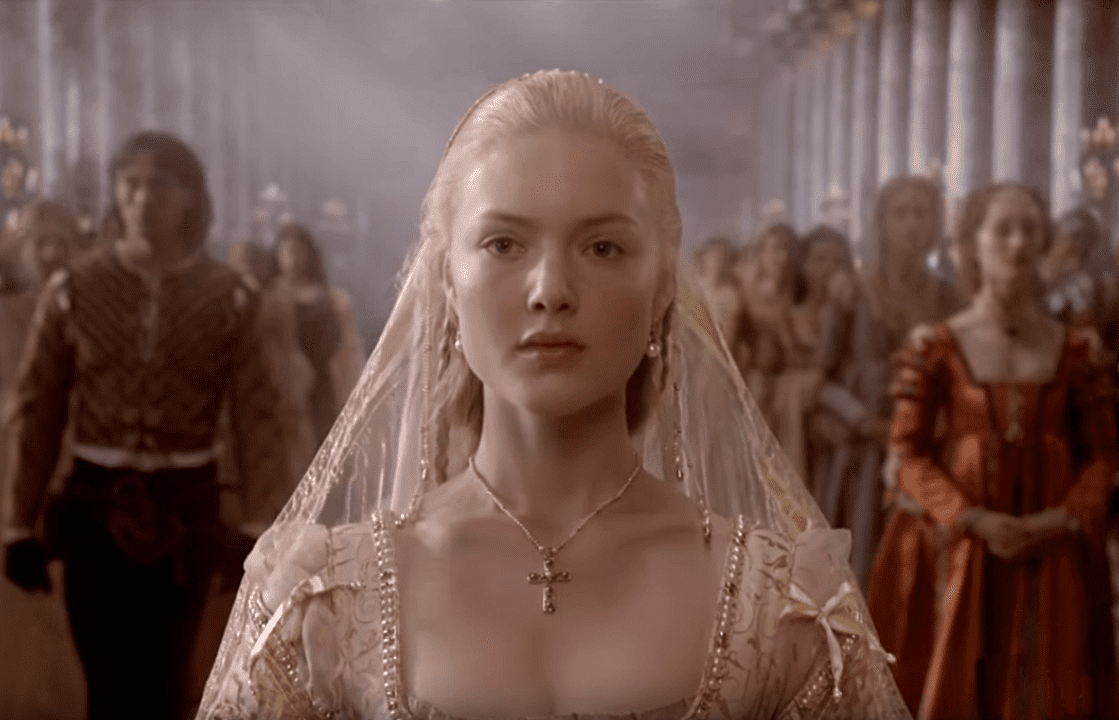 The Borgias (2011–2013), Showtime Networks
The Borgias (2011–2013), Showtime Networks
13. Your Loss Is Our Gain
Shocker: The 13-year-old Lucrezia found little in common with her 27-year-old first husband Giovanni Sforza. The unhappy couple would mutually accuse each other of “misconduct” within four years of marriage. Of course, this disharmony was politically convenient to the Borgias…
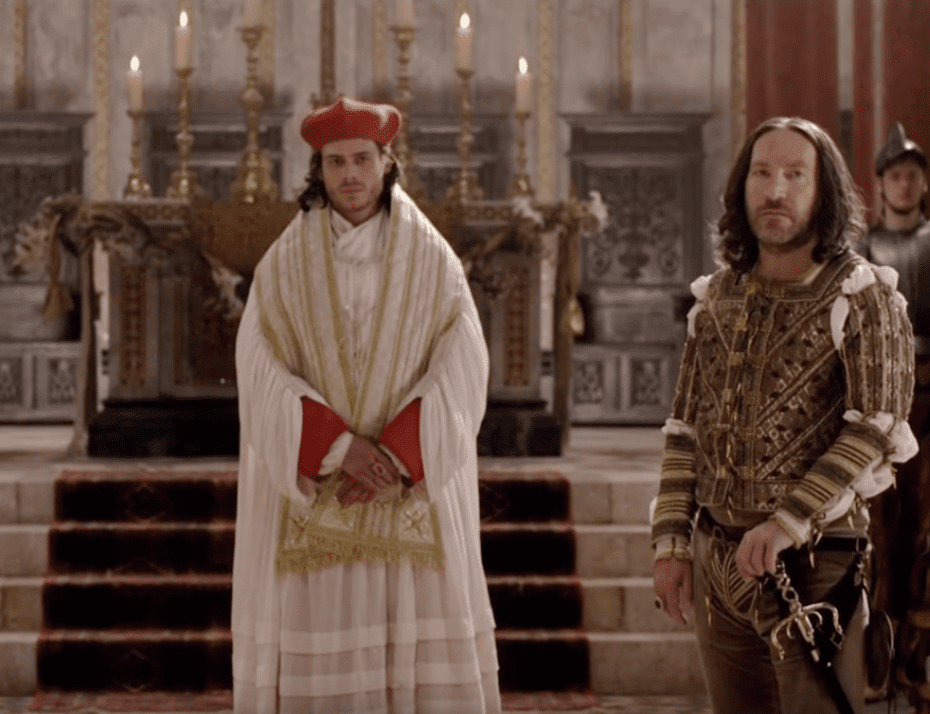 The Borgias (2011–2013), Showtime Networks
The Borgias (2011–2013), Showtime Networks
14. In-Laws, Am I Right?
Not long after Lucrezia’s first marriage, the Borgias’ need for the Sforza alliance expired. According to some sources, Lucrezia’s husband was a political lightweight and therefore an annoyance at court to Pope Alexander VI. Then it got worse. The Sforzas also crawled back on their alliance with the Borgias to back King Charles VIII of France. Giovanni was at the Papal court at the time, which made things quite awkward.
15. Your Life Is Your Alimony
Historians believe that Lucrezia got early wind of her family's plans to literally ax their useless son-in-law. Despite their differences, it was Lucrezia who warned her husband, who then promptly got out of town disguised as a beggar.
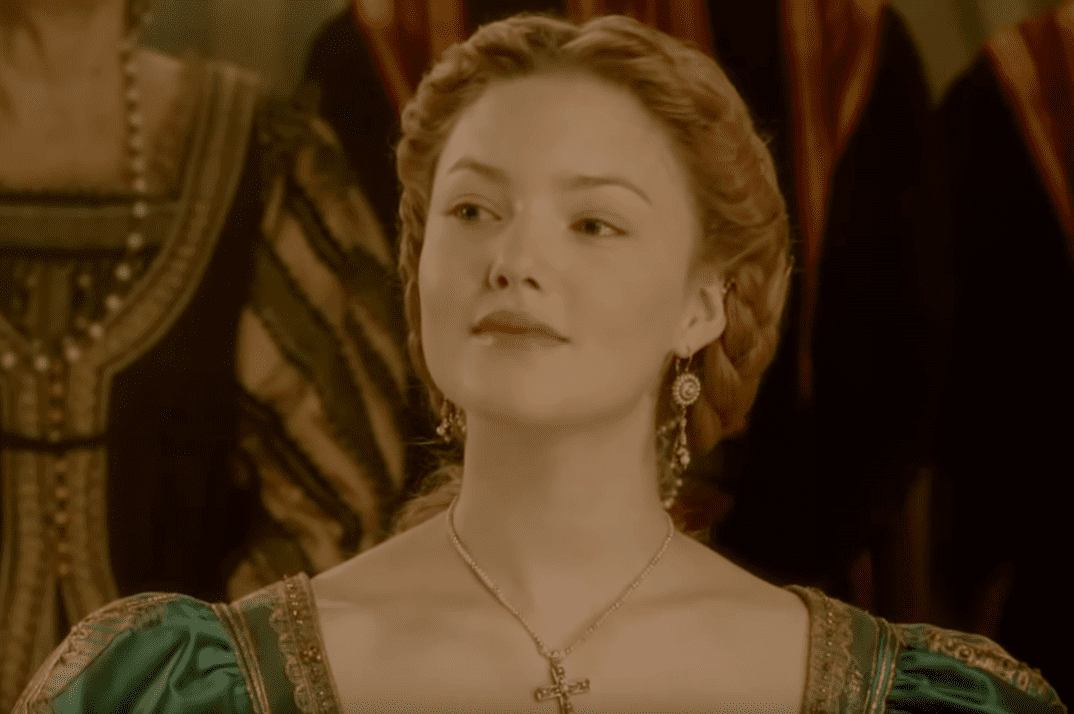 The Borgias (2011–2013), Showtime Networks
The Borgias (2011–2013), Showtime Networks
16. The Pope Drives a Soft Bargain
In the end, Lucrezia’s first husband agreed to annul their marriage if he could at least keep her dowry. That worked well enough for the Borgias. However, Giovanni Sforza also had to sign a contract saying that the marriage was never consummated on account of his impotence. So, exactly how much was that dowry again?
17. A Talent for Tonguing
Lucrezia had a skill for public speech from a young age. Attending her annulment proceedings as a teenager, she made a speech so eloquent that an ambassador declared “that not even Cicero could have spoken with more precision and grace.”
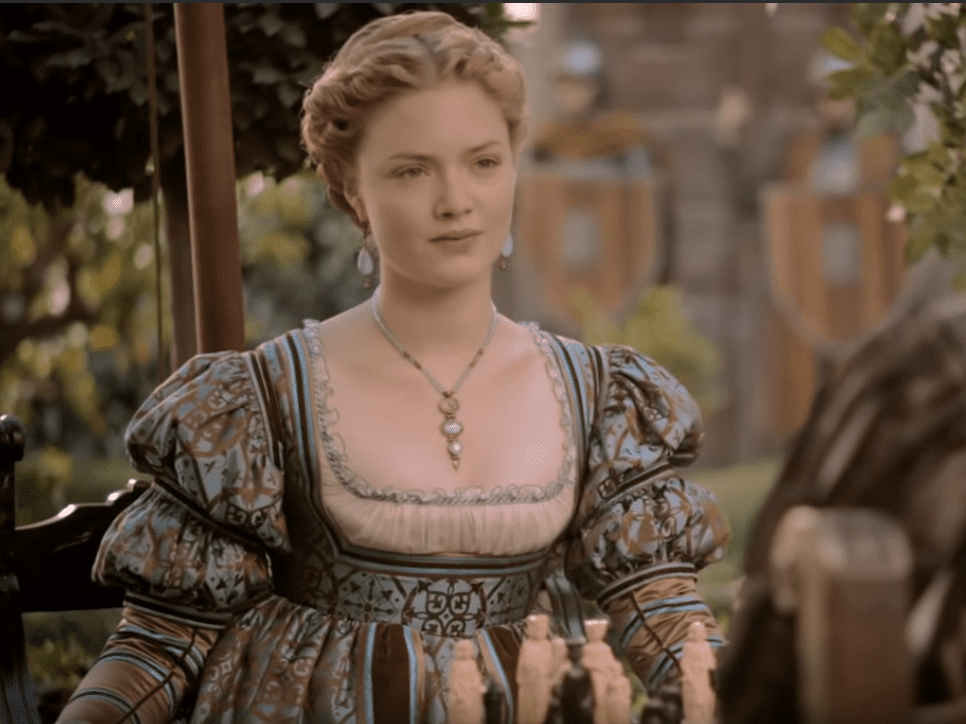 The Borgias (2011–2013), Showtime Networks
The Borgias (2011–2013), Showtime Networks
18. The Girl in Charge
Pope Alexander VI kept his daughter close to his business, which wasn't to everyone's tastes. Men whined about Lucrezia and her ladies-in-waiting’s presences around the Pope. Lucrezia’s birth was already a scandal; her proximity to papal power as a woman was just more salt in the wound.
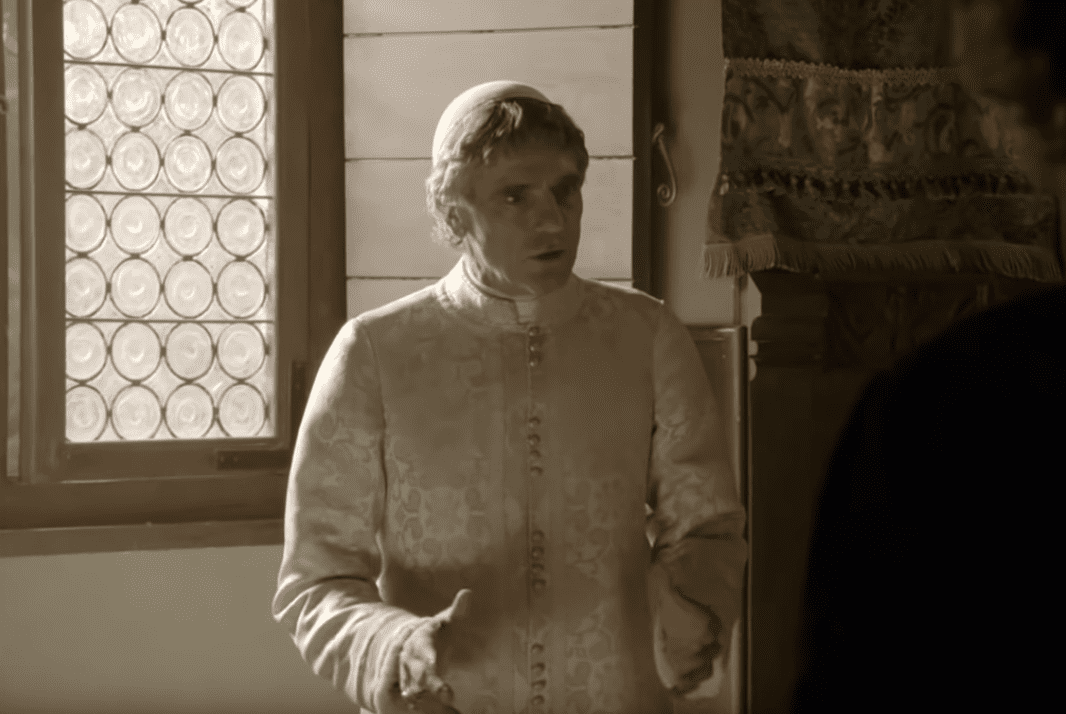 The Borgias (2011–2013), Showtime Networks
The Borgias (2011–2013), Showtime Networks
19. That’s Not in a Daughter’s Duties
Pope Alexander VI appointed his daughter Lucrezia as the Governor of Spoleto in her own right, and enlisted her to help with official chores—but some said she performed even more scandalous work for her father. According to the gossip mill, Pope Alexander tasked Lucrezia with the daughterly duty of managing his orgies.
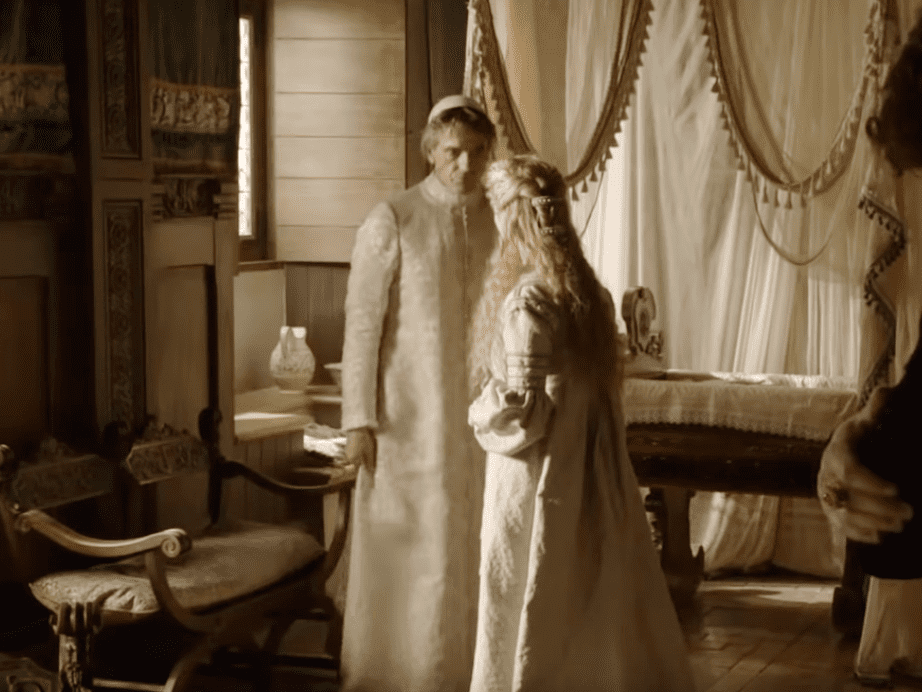 The Borgias (2011–2013), Showtime Networks
The Borgias (2011–2013), Showtime Networks
20. The Unhappy Dozen
Lucrezia’s relationship with her first son, Rodrigo of Aragon, was an immense tragedy. The widowed Lucrezia was forced to give up custody of her toddler upon her remarriage in 1502. Mother and son never saw each other again. Lucrezia's multiple attempts to regain custody came to naught: Rodrigo died of illness in 1512 at just 12 years old.
21. Left on Read
Ever the dutiful daughter, Lucrezia oversaw the answering of her father’s mail when he was out of town. Considering her father was the pope, this was no petty chore.
22. The Cost of “Love”
In 1502, Lucrezia made her third and final marriage. The final groom was Alfonso d’Este, the future Duke of Ferrara. Her future father-in-law was initially hesitant to wed his heir to the now-scandalous Lucrezia. After all, her two previous marriages had ended in (1) an impotence declaration and (2) murder. The Borgia exploits were just sour icing on the cake.
Disturbingly, Pope Alexander had to take matters into his own hands. The old duke warmed his cold feet after the pope threatened him with the loss of lands and then sweetened the deal with a larger dowry and cushy church job for his son.
23. To Survive and Thrive
In the court of her third husband in Ferrara, Lucrezia Borgia enjoyed a career as a Renaissance consort. The marriage with Alfonso d’Este was fertile and produced eight children. She also held an impressive court, which ensured her career would thrive even as Borgia fortunes in Rome ended with her father’s death in 1503.
24. The Gift of Humanity
As the Duchess of Ferrara, Lucrezia was finally empowered to make her own mark as patroness of the arts. Among the poets who praised her was the man who invented the term “humanism,” Ludovico Ariosto.
25. All Your Little Words
After a lifetime of lewd accusations, Lucrezia may have finally taken the plunge and done something naughty. It's said she had an affair during her third marriage. One of her greatest admirers was the poet Pietro Bembo. As Duchess of Ferrara, Lucrezia heavily patronized Bembo’s work, and their letters to each other have been interpreted by some as less matronly and more romantic. The poet Lord Byron himself described them as “the prettiest love letters in the world.”
26. Hair Today, Creepy Tomorrow
The English poet Lord Byron was a big fan of Lucrezia Borgia. Centuries after her death, Byron claimed to be in the proud possession of a lock of her hair, which he referred to as “the prettiest and fairest imaginable.” Fanboys have truly been around forever.
27. A Most Sexy Medical History
Lucrezia was quite the bad girl in her third marriage. Historians speculate that she also enjoyed an extramarital affair with her own brother-in-law, Francesco II Gonzaga, Marquess of Mantua. The "bro-mance" probably began in 1503, and some think it continued until Gonzaga caught syphilis. However, it was fairly common knowledge that the Marquess caught syphilis in 1500—years before he ever met Lucrezia.
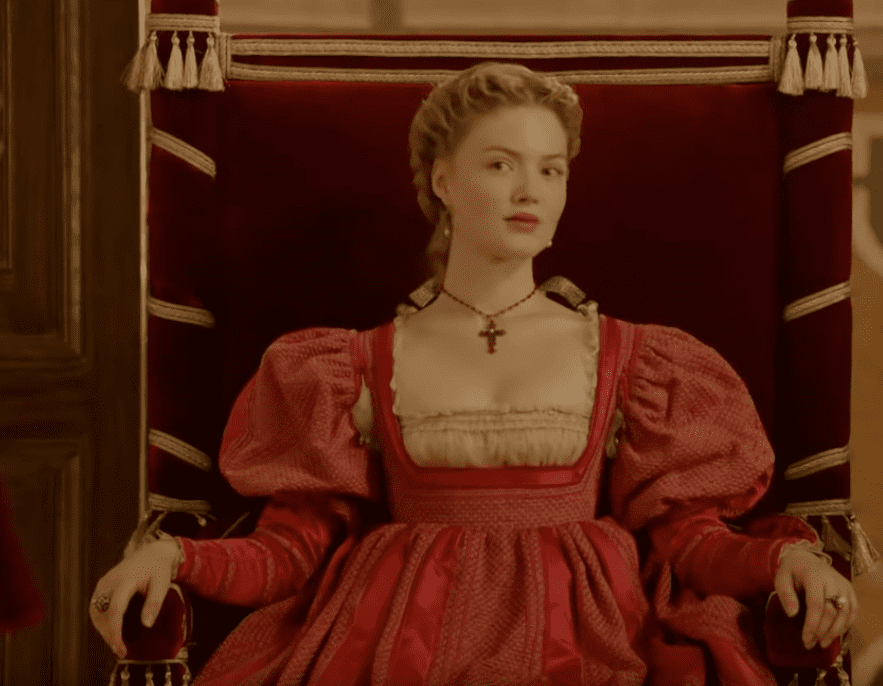 The Borgias (2011–2013), Showtime Networks
The Borgias (2011–2013), Showtime Networks
28. A Coin a Day Keeps the Peasant Mob Away
In addition to funding the arts, Lucrezia had an entrepreneurial streak. As Duchess of Ferrara, she shrewdly invested her cash in marshes so the lands could be drained and converted into farmlands. The wealth was reinvested back into convents and hospitals, which itself was an investment toward the goodwill of the common folk.
29. A Face to Not Remember
Ironically for a woman of such reputation, there is no definite surviving portrait of Lucrezia Borgia. Even the most popular image attributed to her figure—Portrait of a Youth by Dosso Dossi—is uncertain. With no face to call her own, artists, writers, and gossip mongers have filled in the blanks.
30. Art Is Hardly Flattering
The poisonous exploits of Lucrezia Borgia were mythologized by French author Victor Hugo in his 1833 play Lucrezia Borgia. This text depicts Lucrezia as a power-hungry woman who schemes, strangles, and even poisons communion wafers on her bloody path to glory. It’s entertaining to watch, but hard for Lucrezia’s reputation to come back from.
31. You Can’t Take Him With You
Despite their (rumored) mutual adultery, Lucrezia’s final marriage to Alfonso d’Este was also mutually affectionate. Upon her death by childbirth in 1519, people saw the Duke weeping at the demise of his “sweet companion.”
32. Eyes on Your Own “Work”
Lucrezia made great attempts to befriend her third husband’s sister, Isabella d’Este. The two ladies had a lot in common as intellectual patronesses of the Renaissance. Alas, this friendship was not to be, as Isabella coldly snubbed Lucrezia’s overtures, feeling that she was her rival. Lucrezia responded with a ruthless betrayal.She slept with Isabella's husband, naturally.
33. Some Help From the Help?
One accusation levied against Lucrezia still concerned adultery. During her annulment proceedings with Sforza, Italian nobles alleged she had an affair with the Pope’s chamberlain, Perotto Calderon. They alleged that she was pregnant with their lovechild even at the time she was testifying to her own virginity. It seems far-fetched—but the evidence is chilling.
Lucrezia entered into a convent in 1497, far away from the public eye. Soon after, Perotto's body was found in the Tiber river along with a chambermaid. To explain the mystery, many argued that just as Lucrezia went into a convent to have her secret lovechild, the Borgias had Perotto and the maid killed in order to tie up loose ends.
34. Brother From Another Mother
In March 1498, a boy of uncertain parentage was born into the Borgia household. Was he truly a lovechild of Lucrezia Borgia’s, as many speculated? The child was named Giovanni, but is often referred to as Infans Romanus, or “the Roman child.” Pope Alexander would issue two contradictory papal bulls about his parentage.
One bull assigned him as the illegitimate offspring of Lucrezia’s older brother, Cesare. The second bull assigned him as the natural son of the Pope himself! Whatever the truth, the Infans Romanus was raised as a close companion to his rumored mom, who referred to him as her beloved half-brother. The two even lived together when Lucrezia ascended to the Duchess of Ferrara years later.
35. This Theory Is Truly Nuts
To this day, the popular image of Lucrezia Borgia is as a femme fatale who is complicit in her male relatives’ corruption. The worst story of all is the legendary "Banquet of the Chestnuts." The banquet was an orgy hosted by her brother (ew) for their pope father (double ew). According to lore, this banquet involved about 50 courtesans, who were stripped and made to pick up chestnuts off the floor.
Prizes were given to those who could “perform” with as many partners as possible in this cornucopia of decadence, all while the Borgias looked on. Lucrezia’s presence, and even the event itself, is heavily disputed.
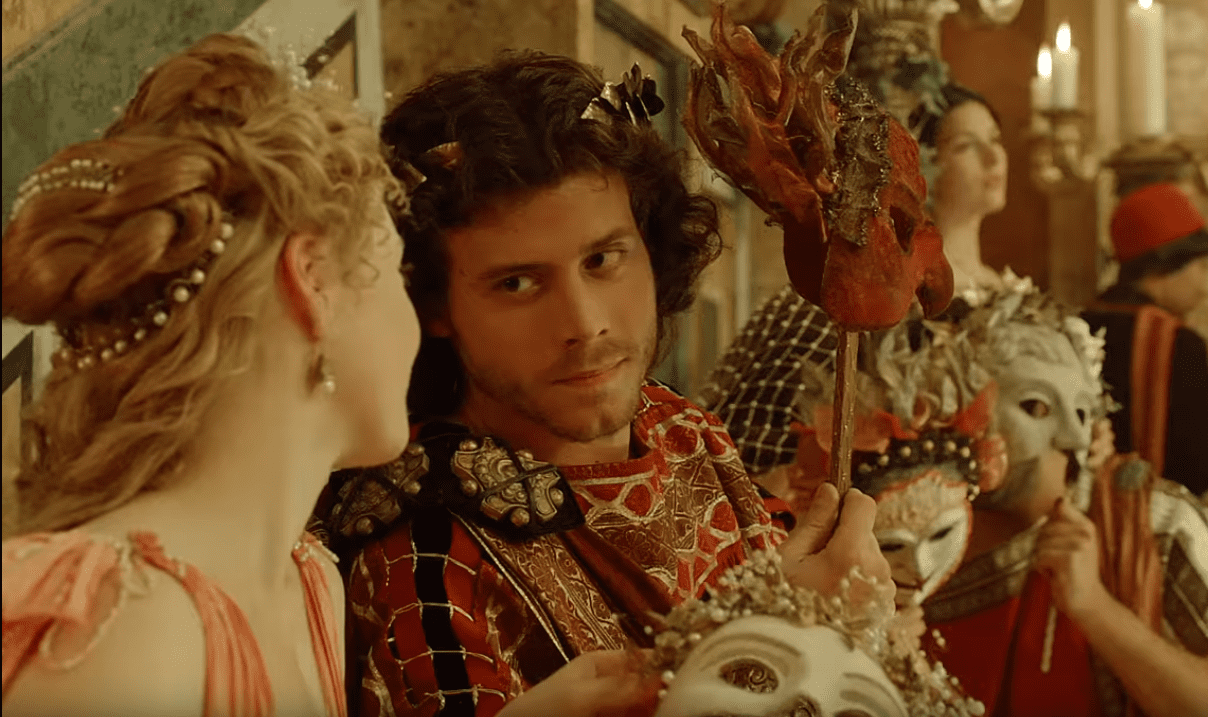 The Borgias (2011–2013), Showtime Networks
The Borgias (2011–2013), Showtime Networks
36. Love Him While It Lasts
Lucrezia’s second marriage was much happier than her first. In 1498, the 18-year-old Lucrezia was married to Alfonso of Aragon, the illegitimate son of the King of Naples. The couple was much closer in age and quickly had a son, Rodrigo. Unfortunately, this marriage was also doomed to an utterly heartbreaking end.
37. Love Hurts (You)
In 1500, Lucrezia played nurse to the men in her life due to a series of freak political “accidents.” On July 15, 1500, a mob attacked her husband Alfonso and his entourage right on the Vatican steps. He was taken inside the Vatican to be healed just as Lucrezia had been attending to her father’s injuries from an earlier (supposedly) freak chimney accident.
38. A Stab at the Dating Scene
Just weeks later, the true disaster struck. A still-healing Alfonso was found strangled to death in his bed on August 18, 1500. Someone definitely had it out for him—we'll get to that later—and Lucrezia was beside herself with grief. She was also single again.
39. Too Close for Comfort…or Plausibility?
The beginning of Lucrezia’s bad “reputation” began with her annulment from her first husband, Giovanni Sforza. Pope Alexander sought to dissolve his daughter’s now inconvenient marriage on the grounds of non-consummation—much to her husband’s protest. In response, Giovanni made an incredibly disturbing accusation.
He accused Lucrezia of incest with her brother, Cesare. Though the marriage was eventually annulled with none of the incest accusations validated, the damage was done. Lucrezia and Cesare’s relationship would now forever be suspect.
 The Borgias (2011–2013), Showtime Networks
The Borgias (2011–2013), Showtime Networks
40. My Brother, My Widowmaker, My Lover?
According to lore, Lucrezia had her eldest brother to blame for her widowhood. People often cite Cesare Borgia as the killer of Alfonso of Aragon, and he possibly orchestrated both attacks on the man. Some even said that Cesare once came up to Alfonso after the failed first attack and whispered threateningly, "What didn’t happen at lunch could still happen at dinner."
All this didn’t help those incest rumors, which still burn hot centuries later.
 The Borgias (2011–2013), Showtime Networks
The Borgias (2011–2013), Showtime Networks
41. Daddy Not-So-Dearest
Rumors of incest between Lucrezia and her brother Cesare are the most notorious allegations made against her…but they get even worse. Lucrezia’s first husband Giovanni Sforza also accused Pope Alexander VI himself of improper relations with Lucrezia, saying he initiated the annulment proceedings “to have the freedom to enjoy himself with his own daughter.”
Obviously, Giovanni Sforza was biased. Still gross, dude.
42. One Birth, Two Deaths
In 1519, Lucrezia gave birth to her final child—but the "happy" day doomed her.The baby was a girl named Isabella who died on the day she was born. Lucrezia herself would die from postnatal complications just 10 days later on June 24, 1519. She was 39 years old.

